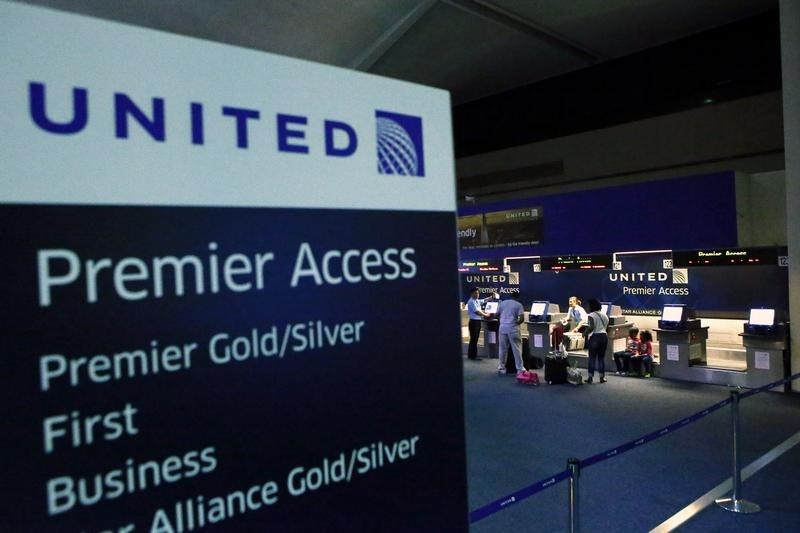5 big analyst AI moves: Apple lifted to Buy, AI chip bets reassessed
Investing.com - Freedom Capital Markets has raised its price target on United Airlines (NASDAQ:UAL) to $110.00 from $98.00 while maintaining a Buy rating on the stock. Currently trading at $100.71, the stock has seen a robust 51.8% gain over the past six months, with analyst targets ranging from $62 to $156.
The price target increase comes as United Airlines continues to deliver strong results despite experiencing a decline in passenger yield, according to the research firm. The company’s financial strength is evident in its $58.4 billion revenue and $8.1 billion EBITDA over the last twelve months. InvestingPro analysis shows the stock trading at an attractive P/E ratio of 10.1x.
Freedom Capital believes United’s ongoing strategic shift toward premium service will help the airline stay on track to achieve double-digit margins by the end of the decade.
The firm remains cautiously optimistic about United’s prospects given the current industry environment.
Freedom Capital reiterated its Buy rating on United Airlines stock alongside the higher price target.
In other recent news, United Airlines has seen several changes in analyst price targets. Morgan Stanley raised its price target for United Airlines to $140, citing a promising outlook for earnings per share exceeding $15. Similarly, TD Cowen increased its price target to $138, following United Airlines’ third-quarter 2025 results and management’s guidance for the fourth quarter. Jefferies also adjusted its price target upward to $130, highlighting discussions about margin expansion potential.
Conversely, UBS lowered its price target to $128 due to concerns over rising costs per available seat mile excluding fuel expected in 2026. Despite these varied assessments, all firms maintained a Buy rating on the stock. In other developments, United Airlines CEO Scott Kirby warned that the ongoing government shutdown could impact airline bookings and flight operations. The shutdown, now in its third week, has exacerbated a shortage of air traffic controllers, leading to occasional slowdowns in air traffic.
This article was generated with the support of AI and reviewed by an editor. For more information see our T&C.
